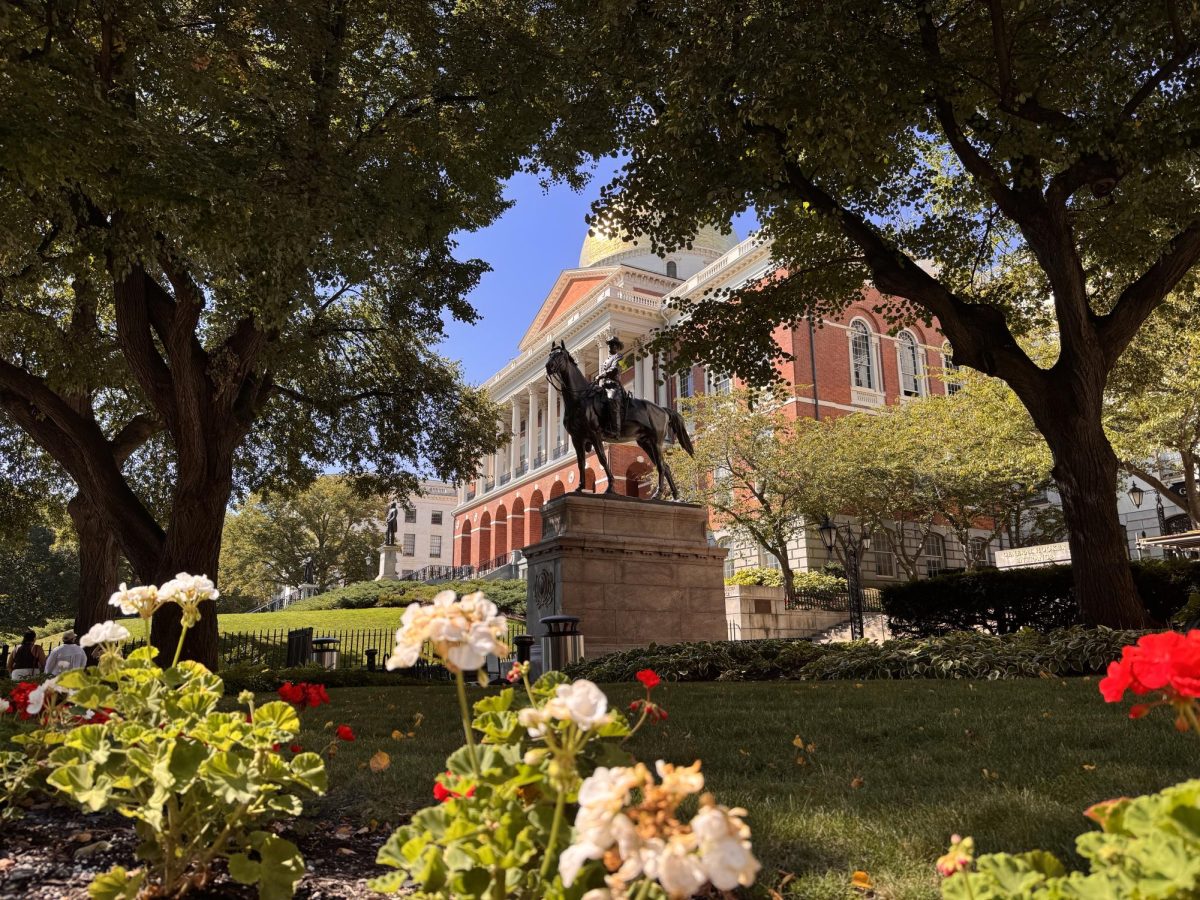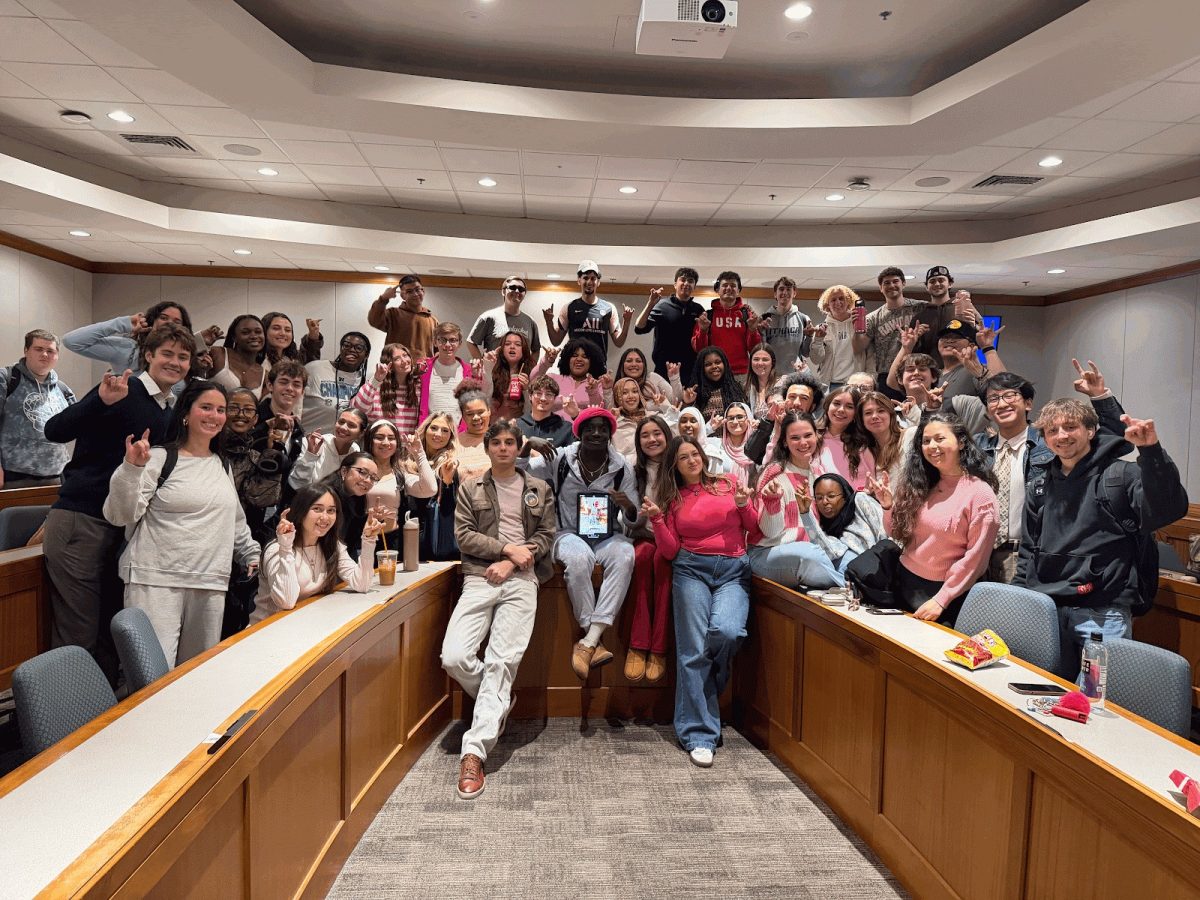Jeff Fish and Derek Anderson, Journal Staff
With continued changes at Suffolk, including yesterday’s appointment of 12 new members to the Board of Trustees and new promotions within the university, staff and faculty members still expressed deep concern at the 20 recent layoffs and the manner in which they were handled.
Acting President and Provost Barry Brown sent out an email to faculty and staff members announcing a “restructuring” of the staff on September 23. “The restructuring will result in a small reduction in the size of our administrative work force,” he said in the email, which was sent on the day the layoffs occurred.
“The massive firings Friday, especially the way they were carried out, constitute a clear threat to the academic integrity of Suffolk University,” said Government Professor John Berg in an email he sent out to faculty. “How can we teach our students the importance of treating others fairly when our governing board and acting president have shown so visibly that they believe the opposite?”
Since then, rumors of more layoffs have been swirling, keeping many staff members on edge. The Boston Globe reported yesterday that more layoffs are possible.
“The review is ongoing and we are committed to making sure our operations are as effective as possible for the benefit of our students,” said university spokesman and new Interim Vice President of Marketing and Communications Greg Gatlin.
The atmosphere among Suffolk staffers has been “horrible,” according to one staff member in the College of Arts and Sciences who spoke on condition of anonymity for fear of losing her job. “Everyone’s frightened. We don’t know day to day if we’re going to come in and get laid off.”
“So many people did not know that this was happening until it happened,” she said.
Suffolk announced the promotions in an email to staff and faculty yesterday morning, followed by a second email to the entire community announcing new Trustees yesterday evening.
“Our dedicated board members look forward to augmenting their expertise by bringing in these new members,” said Andrew Meyer, the Chairman of the Board of Trustees in a statement. “Together we will solidify our efforts to maintain the highest standards of academic excellence while remaining mindful of the challenging financial climate and its impact on our students.”
Brown told the Globe that Suffolk was at risk of running a $7 million potential deficit in the 2012-2013 year.
According to Gatlin, the school has accumulated $360 million in debt over time with its expansion throughout downtown Boston. In the spring, Suffolk hired the Pappas Consulting Group, a firm specializing in higher education and non profits.
“The university had a budget surplus in the most recent fiscal year,” Gatlin said in an e-mail to The Journal. “We expect we will not have a budget deficit by the end of the current fiscal year, which is partly attributable to cost savings associated with the current reorganization. We are hoping to show a surplus.”
Berg acknowledged that the university was in financial trouble, but said the problems could be handled differently. “Obviously getting rid of people is the easiest way out. They could sell a building, but they don’t want to do that,” he said in a phone interview.
“There’s no question that [the administration] destroyed the sense of community of caring and shared values that motivated people to work at Suffolk—people who probably could have made more money somewhere else,” he continued.
Gatlin said the way the layoffs were handled were “consistent with many other universities that have had similar restructuring.”
Yesterday’s article in the Globe highlighted some goals for the university from Meyer and some of the new trustees.
New board member Roger Berkowitz, president and chief executive of Legal Seafoods, expressed a desire to change the curriculum and have a debate about including more online courses. “I saw Suffolk as having the potential of Northeastern University—a place that was in the shadows for a long time and then had a renaissance,” he told Globe.
John Brooks, chief executive of the Joslin Diabetes Center, told the Globe that the university “needs to be a little bit faster and slightly less bureaucratic.”
Meyer expressed confidence in the new board members. “We need people who understand that running an institution of higher education today means running a business,” he told the Globe.
He also told the Globe that there is “no desire” to raise tuition next year. “We have an economy where people can barely afford to send their kids to school. We have to stop tuition from going up,” he said.
“We do have a great appreciation for those that run the university and the legacy they leave behind,” said Gatlin. “These are very difficult decisions but the process was handled with dignity and respect for those affected.”
Brown was unavailable for comment.














